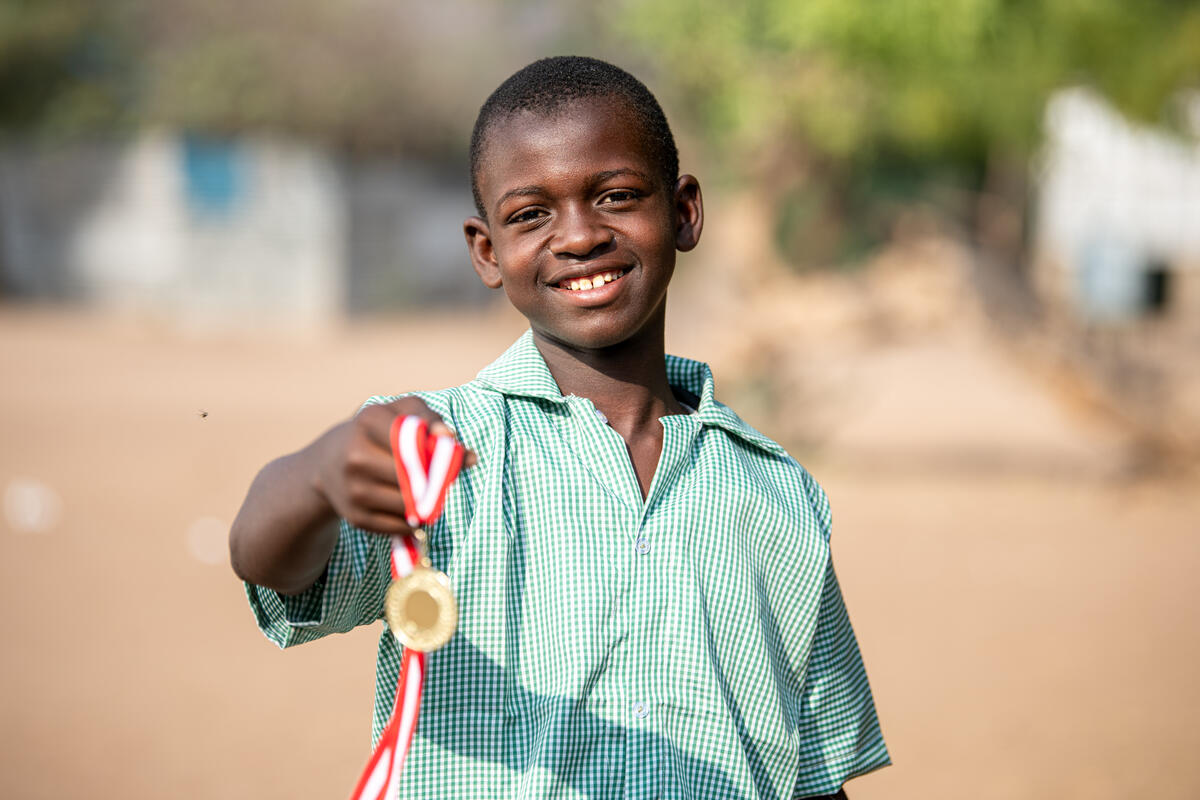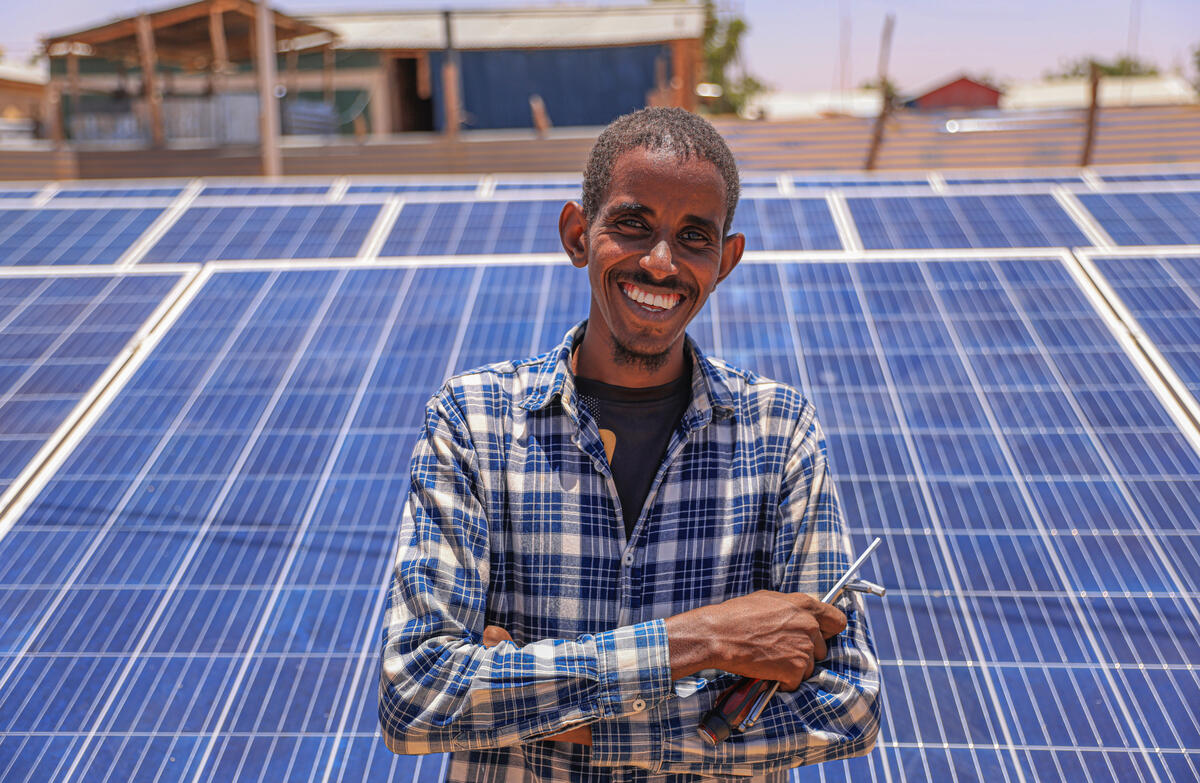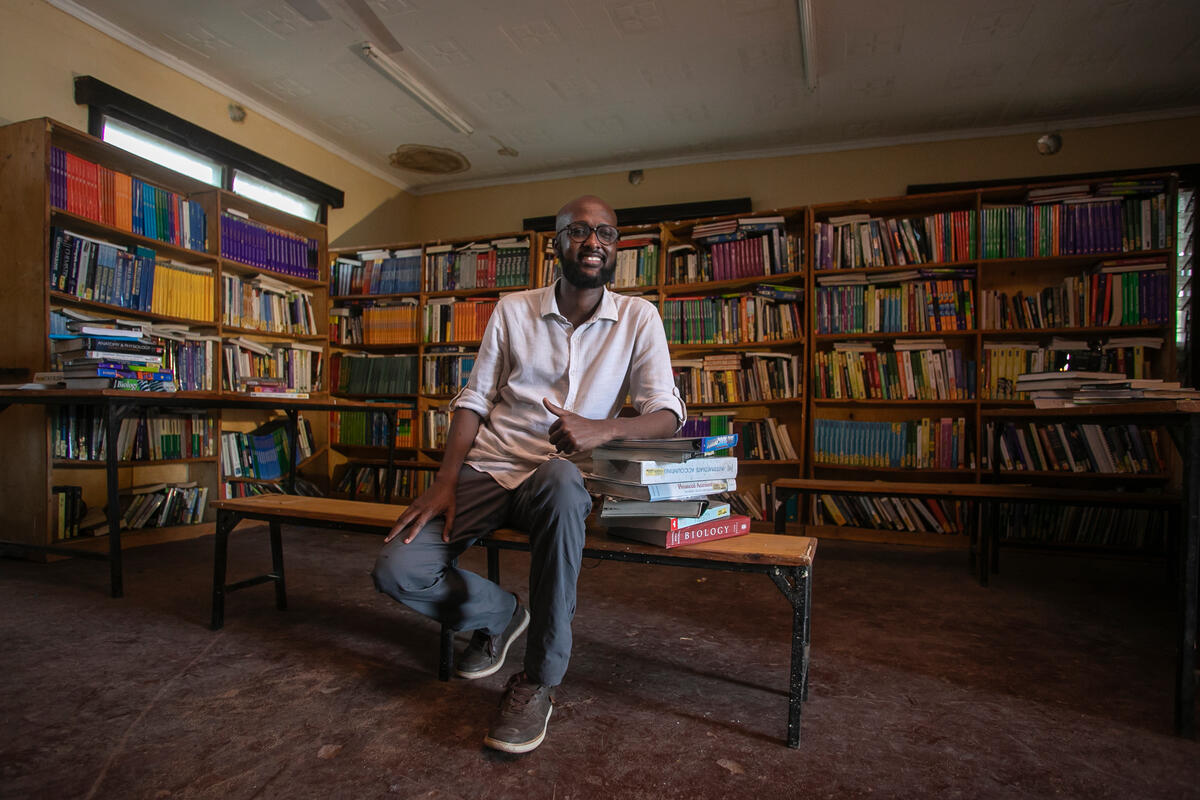Mobile courts offer hope for Somali refugee in her fight for justice
Mobile courts offer hope for Somali refugee in her fight for justice

NAKIVALE, Uganda, October 29 (UNHCR) - Last year, Beydan's* seven-year-old son was raped by three teenage boys at his school in a refugee settlement in south-west Uganda. Her Somali culture demanded that she carry her sorrow alone and with dignity; such crimes should be settled through traditional and internal systems.
But the fiery, single mother wasn't willing to do this - she wanted to see the culprits punished properly so that she no longer had to worry about sending her children to school. She decided to report the case to the police and is now waiting for it to be brought before the next mobile court session in the Nakivale refugee settlement.
In May, UNHCR launched the first mobile court programme for refugees and Ugandans living in and around the settlement as a way primarily to address the lengthy wait that refugees face before their cases are heard, and to encourage reporting of sensitive crimes such as rape, sexual assault and domestic violence.
This is one of only a handful of such initiatives run by UNHCR globally; a similar programme has proved very successful in Kakuma and Dadaab camps in Kenya.
But it is not easy to change people's minds about traditional conflict resolution methods. Beydan has learnt this the hard way. Ever since reporting the assault on her son, she has received threats and intimidation from Somalis in Nakivale who feel the case should be resolved internally and do not want a public resolution to a private crime.
But Beydan has already survived the loss of her husband and the war in Somalia and she isn't going to give up without a fight - the court offers her hope. Through a friend in the Ugandan capital, Kampala, who translates for her over the phone, Beydan goes almost daily to the police to check on her son's case and says no amount of threats will deter her from seeking justice.
Despite such challenges and deep-rooted traditional prejudices, UNHCR staff and refugees in Nakivale are starting to notice some positive changes as a result of the mobile courts. Simon* is a refugee interpreter at the courts and says he sees a change in people's attitude to crime and reporting since the courts started.
"Many people will report their cases now, especially if they already have many witnesses," he said. For refugees such as Simon, who comes from a rural and isolated part of the Democratic Republic of the Congo (DRC), this is the first time they have ever seen this kind of court. "In Congo everyone is afraid, but here in Uganda there is justice. In the DRC you can't get it," he asserts.
Justin,* who was a witness at one of the cases heard here, believes the mobile courts are setting a good example on justice and accountability. "The court is like a fire, people will be aware that once they commit a mistake, they will be punished, and I think the number of cases will reduce," he said.
The pilot project is run in collaboration with the Ugandan government and is free for refugees, who are represented free by lawyers provided by the government. Since May, two separate court sessions - presided over my magistrates in a vocational training centre and lasting between five and 15 days - have been held in Nakivale.
At total of 45 cases, including murder, burglary, paedophilia, cattle stealing and negligence, have been heard. The courts function in accordance with the Ugandan justice system. Before, cases were heard sporadically at a court in Kabingo, 50 kilometres away.
Philip Odoki, chief magistrate of nearby Mbarara town, heard the first case in Nakivale. He has been pushing for access to justice for all people in Uganda for a long time. It is not just a problem for refugees, but also for Ugandans, he says. The challenges in the judiciary system include a lack of funding, capacity and trained personnel, and this means many Ugandans also have to wait a long time before their cases are heard by a magistrate or judge.
For this reason Odoki was happy to become part of the UNHCR initiative. "The mobile court is a wonderful idea - it assists in taking justice to people by reducing the expenses they incur in transport and it sends a message to other would-be offenders or those that have been wronged to see these things happening close," he stressed.
For him, it doesn't matter if the offender is a refugee or a Ugandan national as they all deserve fair treatment and a quick trial. "The crimes of refugees and nationals are the same…if someone wants to kill they will kill," he noted.
If successful in Nakivale, UNHCR plans to extend the initiative to other refugee settlements in Uganda. Beydan, meanwhile, is just happy that the wheels of justice are rolling and she hopes the mobile court will bring closure for her and her son.
* Names changed for protection reasons
By Lucy Beck in Nakivale, Uganda








